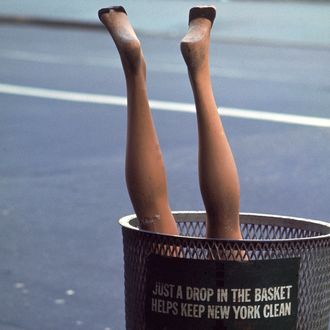
When you move, you end up throwing away a lot. Once, a friend in the panicky final stages of clearing out her apartment threw out a microwave; she just stuffed it down the trash chute and walked away. This seems extreme. But it’s true that sometimes, buying new stuff is easier than hauling your old stuff across town; it’s unquestionably easier than taking it with you when your new home is across the country, or, for that matter, the world.
The sadder truth about relocating, of course, is that you don’t just leave some of your possessions behind; you leave your people behind, too. In a new paper, published online this week in the journal Personal Relationships, two psychologists argue that the two are intertwined: People who move more frequently tend to view both their stuff and their relationships as more disposable, perhaps because they’ve simply become accustomed to disposing of them.
In one experiment, the researchers — Omri Gillath at the University of Kansas and Lucas A. Keefer at the University of Dayton — asked people about their willingness to let go of both the things and the relationships in their lives. Would they be willing to give up something they owned if they had to spend a lot of effort on its upkeep? What if they no longer found much fun in owning it, or if it were no longer useful? They posed the same questions about the relationships in people’s lives, and found that the more people expressed a willingness to part with the things they owned, the more they were willing to let go of the close friendships in their lives, too. Two additional experiments replicated this finding, and also found that people who move around a lot tend to be more willing to part with their possessions than people who move less frequently.
A final experiment tried to get at the larger question — of geographical moves and social ties — more directly. Gillath and Keefer asked their study volunteers to do two different versions of a little thought experiment. Imagine, they instructed, that you’ve just gotten your dream job — but it means you’ll have to stay in the same place for ten years. Another group of volunteers were told to imagine their dream job meant moving every other year. Both groups wrote about the implications of such a future for a while, and the experimenters then asked everyone a few rather straightforward questions, including, “How often do you tend to end and start close relationships?” In the end, those who had been instructed to imagine a highly mobile future said they were more likely to begin and end close relationships than those who’d imagined a future that kept them anchored to one place for an extended period of time.
On the one hand, maybe the people who move around a lot do so because they have less attachment to possessions and people than those who move less frequently. The researchers, however, theorize that it’s more likely to be the other way around — that high mobility may be what’s causing this disposable-friendship view. And this makes a certain amount of sense: If you know you are the type who doesn’t stay in one place for very long, you are probably good at making friends quickly, and necessarily so. But you’ve also likely learned not to get too close, so it won’t hurt quite so much when you leave.




